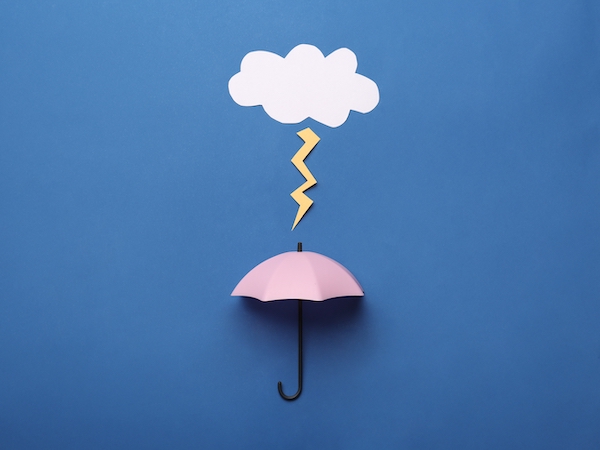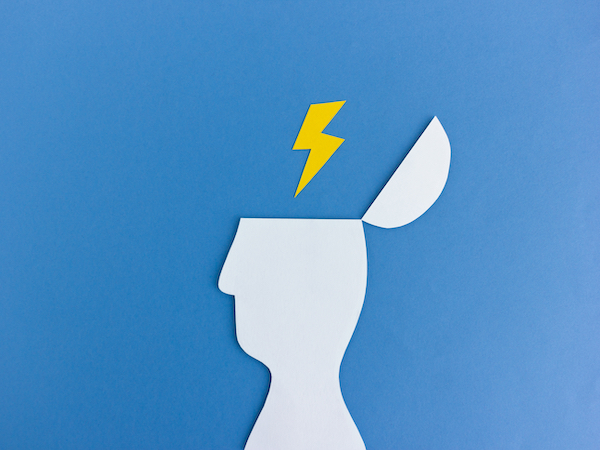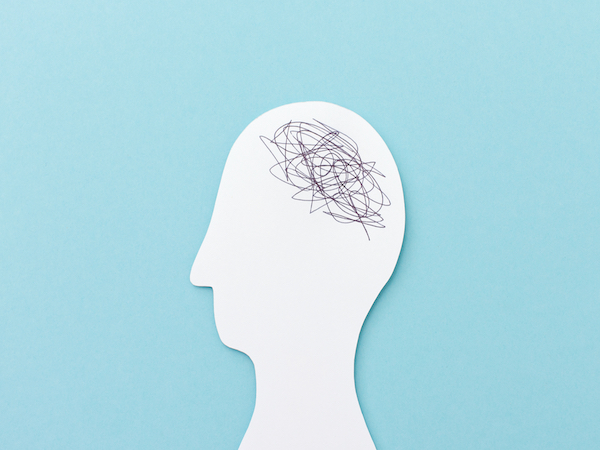While anxiety itself comes in many different forms, in 2014 it was estimated that almost 12% of Canadians reported living with a form of mood or anxiety disorder.
Of those, almost a third reported their mood or anxiety disorder had negatively impacted their life.
There are a multitude of factors that can contribute to your mental health and learning how to deal with challenges as they arise can also help you deal with your anxiety.
If you’re in crisis, seek medical help immediately.
What’s the difference between feeling anxious and having an anxiety disorder?
Anxiety, or the feeling of being anxious, is usually characterized by worrying about the potential of a negative event happening.
The intensity of these feelings can vary. Anxiety happens when it’s difficult to stop worrying, either about something specific or just worry in general, and this worry has a fairly significant impact on your quality of life including sleep, mood, ability to work, and/or interpersonal relationships.
Anxiety itself isn’t a mental disorder. It’s simply one of those emotions that give us information about how we’re feeling. You could be anxious about a job interview, a date, or perhaps trying something new. This is completely normal.
When anxiety starts to interfere with our lives and daily functioning, you may need to take action.
Anxiety falls into four general categories in the Diagnostic and Statistical Manual of Mental Disorders, 5th Edition (DSM-5): generalized anxiety disorder (GAD), panic disorder (PD), post-traumatic stress disorder (PTSD), and obsessive-compulsive disorder (OCD).
There are also varying forms of panic disorders and phobias.
If you do find yourself with feelings of anxiety or worrying excessively and feel like it’s impacting your daily life, there is a possibility that this may be an anxiety disorder.
There are also instances where life stressors actually cause your anxiety to increase to a level that is difficult to manage.
While this doesn’t necessarily meet the threshold of an anxiety disorder diagnosis, there is still help. High-functioning anxiety can look a lot like this.
It’s important that you don’t try to diagnose yourself. There is help available and you don’t have to deal with your anxiety alone.
If you’re in crisis, contact a healthcare practitioner or call 911 immediately.
What are the symptoms of generalized anxiety disorder?
Dealing with anxiety starts with recognizing and understanding the symptoms of anxiety. The symptoms of generalized anxiety disorder can vary somewhat from person to person, and even different genders and ages, but there are marked consistencies. They include:
- A general sense of doom or the feeling that something “bad” is going to happen
- Insomnia or difficulty sleeping
- Overly sensitive or irritable
- Procrastination and/or avoidance
- Consistent unsettlement
- Racing thoughts
- Racing heart
- Panic attack
Generalized anxiety disorder can also look like either trying to please people, avoid conflict, or conversely being very irritable with some outbursts. Some individuals can also suffer from panic disorder.
There are also physical symptoms of anxiety that shouldn’t be overlooked. These include:
- Nausea or general stomach upset
- Sweating
- Exhaustion
- Chest tightness
- Headaches
- Trembling or shaking
- Muscle tension or pain
If you are experiencing physical symptoms, contact a healthcare practitioner right away.
What causes anxiety disorders?
There is no one specific cause of anxiety and it can affect anyone at any age. For some individuals, certain life stressors or a traumatic life event (which can also include job loss, the ending of a relationship or divorce, or unwelcome news) can bring about the onset of an anxiety disorder.
While there is some suggestion that individuals who live with an anxiety disorder may have a family history of an anxiety or mood disorder, there is no concrete evidence.
Generalized anxiety is often a “comorbid” diagnosis, in that an anxiety disorder occurs alongside another mental health diagnosis, such as a mood or eating disorder.
In learning to deal with your anxiety, it’s important to look at all factors in your life, including a family history of mental illness and/or substance use disorder, challenging events, and an overall sense of self-worth. In that way, dealing with your anxiety is a holistic approach.
Treatments for anxiety disorders
Depending on the anxiety disorder, there are multiple treatments available, many of which have better outcomes when paired together, such as medications combined with talk therapy.
If you need assistance, there are numerous mental health resources in Canada.
Luckily, there are multiple prescription medications that can help with generalized anxiety disorder. Felix offers several types of generic and brand-name anxiety medications that help with long-term anxiety treatment, such as SNRIs and SSRIs.
SSRIs: Selective serotonin reuptake inhibitors are popular antidepressants that work by balancing the levels of serotonin in the brain.
SNRIs: Serotonin and norepinephrine reuptake inhibitors work very similarly to SSRIs with the key difference being the neurotransmitter, norepinephrine, is also included.
Depending on other factors and if you have been diagnosed with another mental illness, antidepressants and antianxiety medications are sometimes combined with other medications, such as mood stabilizers. It’s important to keep in mind that all medication comes with the risk of side effects.
Talk therapy
There are various forms of talk therapy.
Finding a mental health practitioner, like a therapist, can help you parse out your feelings and give you better coping strategies.
A healthcare practitioner can help you identify your triggers, which sometimes can be obvious, like coffee, alcohol, or illicit drugs.
Sometimes these triggers may not be so obvious, such as financial issues, a challenging colleague, or difficulties in a relationship.
Some general triggers are:
- Work or school stress
- Anxiety about travelling, driving or commuting in general
- Withdrawal from certain drugs and medications
- Side effects of some medications
- Having another mental illness such as depression
- Caffeine and other stimulants
- Chronic pain
- Another medical health issue
- Not enough sleep
Once you and your therapist have identified your triggers, they can help you work through how to manage unexpected triggers when they do arise, such as stress.
Cognitive behavioural therapy
While cognitive behavioural therapy is technically a form of talk therapy, it deserves mentioning on its own. It is a particularly effective treatment for anxiety and depression and when combined with medications, it is even more effective.
Cognitive behavioural therapy is a type of talk therapy that helps you reframe your thought processes and identify anxious thoughts as they arise, resulting in a different outlook and improved coping mechanisms.
Cognitive behavioural therapy can help with:
- Learning to recognize distorted thoughts, such as unfounded assumptions or beliefs that are harming you
- Identify anxious thoughts
- Using problem-solving skills to cope in difficult situations
- Learning to recognize and gain confidence in your own abilities
Cognitive behavioural therapy usually involves a concerted effort to change behavioural patterns, but with help, this is entirely possible. Some strategies include:
- Facing your fears instead of avoiding them
- Using role-playing techniques with your therapist to prepare for potentially difficult situations
- Learning strategies to calm your mind and relax your body
Cognitive behavioural therapy is an active therapy that can work in many aspects of life, from anxiety to depression, stress and challenging thoughts.
Reduce stress to improve your mental health
Even if you don’t practice cognitive behavioural therapy or seek a mental health practitioner, reducing stress in your life can help in many ways in both physical and psychological health.
When you’re under stress, your body releases stress hormones that activate other areas of your body, including increasing your heart rate.
This is tough on your heart but can also feed into the anxiety cycle.
Although eliminating all stress can be a bit of a challenge, there are plenty of things you can do to help reduce stress and anxiety.
- Eat a balanced diet and avoid sugars and refined carbohydrates
- Try to exercise regularly, even if taking a short walk every day
- Avoid caffeine and other stimulants
- If you smoke, consider quitting
- Refrain from illicit drug use
- Learn breathing techniques
- Practice mindfulness
- Reduce stress triggers as best as you can
Several apps are geared towards mindfulness, relaxation, and breathing techniques.
Trust and be kind to yourself
Anxiety has a sneaky way of making us question our own decisions and capabilities. Being your advocate means being kind to yourself and trusting yourself.
Working through some self-care techniques helps reduce stress and anxiety and shows you that you’re important in your own life.
There are some great self-care techniques that you can try:
- Take time to rest, whether that’s reading a book, taking a leisurely walk, or relaxing with a movie
- Take social media breaks
- Learn to say “no”
- Make a pot of calming and comforting tea (non-caffeinated)
- Listen to your favourite music
- Listen to a podcast or audiobook
- Use scented candles or diffuse essential oils
- Practice yoga
- Do some stretching
- Call a trusted friend or family member
- Remind yourself of your successes and capabilities
- Try a new hobby
It’s important to remember that even with self-care techniques, sometimes anxiety can sneak up on us. That’s why it’s always important to seek help from a mental healthcare practitioner.
Finding hope
Finding hope means seeking out help.
You don’t have to deal with your anxiety alone. Treatments for anxiety vary, and it’s important that you consult with a medical healthcare practitioner to figure out what is best for you. Start your online assessment with Felix to talk to a healthcare practitioner.
If you are having suicidal thoughts, please seek help immediately by going to your nearest emergency department or by calling 911. You can also contact Crisis Services Canada’s national suicide-prevention hotline at 1-833-456-4566 if you are considering suicide or are concerned about someone who may be.




